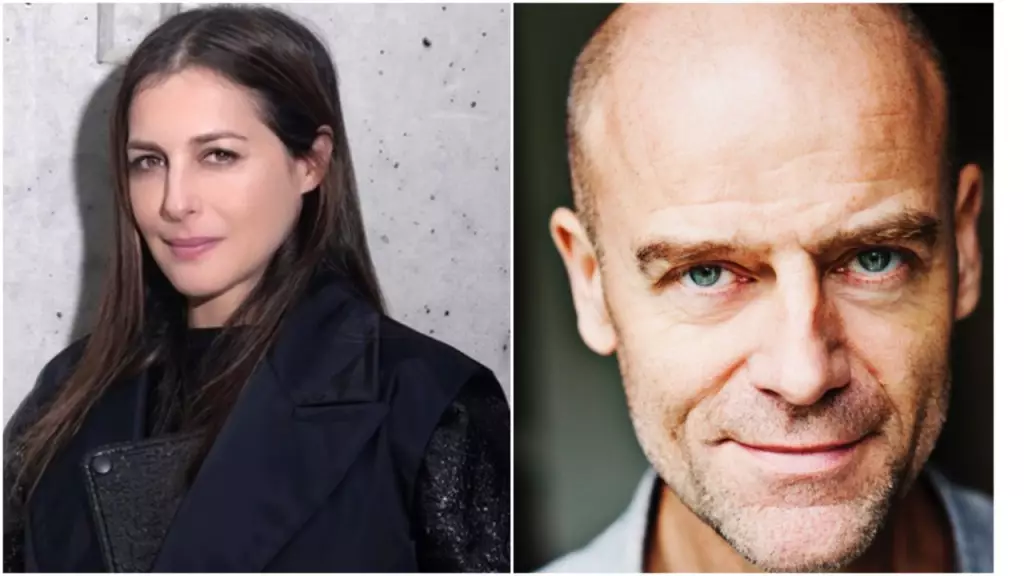The world of short films is often overlooked, despite its capacity to encapsulate profound human experiences in just a brief timeframe. Masha Egieva’s upcoming project, *Rokeby Venus*, dives deep into the labyrinth of middle-aged desire, inviting the audience to not only witness but also question the dynamics of relationships. With established actors Amira Casar and Pip Torrens stepping into pivotal roles, the film promises to be both innovative and striking. Egieva’s approach to storytelling, as she hints at intertwining elements of Greek tragedy and French eroticism, creates an intriguing narrative foundation that defies conventional romantic tropes.
This short film isn’t merely about attraction or eroticism; it grapples with the existential voids troubling a bourgeois couple. The protagonist, Marion, finds herself in a tumultuous emotional landscape, yearning for visibility and affirmation in her relationship, which is overshadowed by her husband’s debilitating condition. This dramatic premise raises critical questions: How do life circumstances erode intimacy? Do women need affirmation from their partners to reclaim their sense of self?
The Intersection of Art and Desire
Egieva’s choice to anchor *Rokeby Venus* in the world of art history is particularly compelling. By using the backdrop of an art historian whose health complicates his perception of love, the film challenges viewers to consider how passion can be both a source of inspiration and a profound obstacle. The character’s obsession with art serves as a metaphor for the thin line between admiration and neglect in relationships. Just as art can mirror the complexities of human emotions, so too does *Rokeby Venus* act as a reflection of the inner struggles that accompany desire.
The filmmaker’s distinctive vision is apparent as she forges a path through a narrative that thrives on contrast—the dichotomy of love and obscurity, visibility and desire. In her claim that ‘women need to be seen to feel desired,’ Egieva deftly highlights the societal pressures that weigh on both partners in a relationship. This proclamation anchors the film in contemporary discussions about gender roles and the intrinsic need for connection and validation. It challenges audiences to confront their own biases regarding female desire and autonomy.
The Production Landscape: Emerging Voices
Beyond the central narrative, the film represents a collaborative venture that underscores the significance of independent filmmaking. Co-written by Raphaël Duhamel and produced under the banner of Reformation Films, *Rokeby Venus* cultivates a shared creative space that invites diverse perspectives. This collective effort brings together seasoned professionals and emerging talent, fostering an environment ripe for innovation. The collaboration with organizations like DISAUTHORITY and Kodak demonstrates a commitment to quality across both production and post-production phases.
This emphasis on community in the filmmaking process is refreshing, particularly as the industry continues to grapple with narratives that prioritize mainstream appeal over authentic storytelling. Independent films like *Rokeby Venus* are essential for nurturing new voices and articulating nuanced stories that might otherwise remain untold in mainstream cinema.
The Broader Context: A Shift in Nordic Cinema
In conjunction with *Rokeby Venus*, the shifts occurring within Nordic cinema provide a rich context for exploring narratives centered on nuanced emotional experiences. Figures like Silje Nikoline Glimsdal, recently appointed as Head of Nordic Acquisitions at Nordisk Film Distribution, are pivotal in steering the direction of film acquisition and production in this region. With a focus on local Nordic films, Glimsdal’s extensive network brings vital resources to projects that showcase the emotional and cultural specificity of the Nordic experience.
As northern cinematic landscapes evolve, they increasingly encompass personal and psychological depths, a movement emblematic of a broader trend within global cinema. Alongside *Rokeby Venus*, we recognize films that expose the undercurrents of national identities and societal expectations, whether it’s through a sports documentary about Sweden’s hockey team or intimate dramas exploring the subtleties of marital strife.
Egieva’s *Rokeby Venus* stands as a beacon of this shift, peppered with rich thematic elements that beckon viewers to embark on a journey of self-reflection and introspection. Surrounded by the weight of unfulfilled desires and societal expectations, viewers will be compelled to examine the fragile yet resilient threads that hold the fabric of intimate relationships together. The film exemplifies the kind of deep, poignant storytelling that captures the essence of contemporary life, urging audiences to rethink their definitions of desire and the art of connection.
